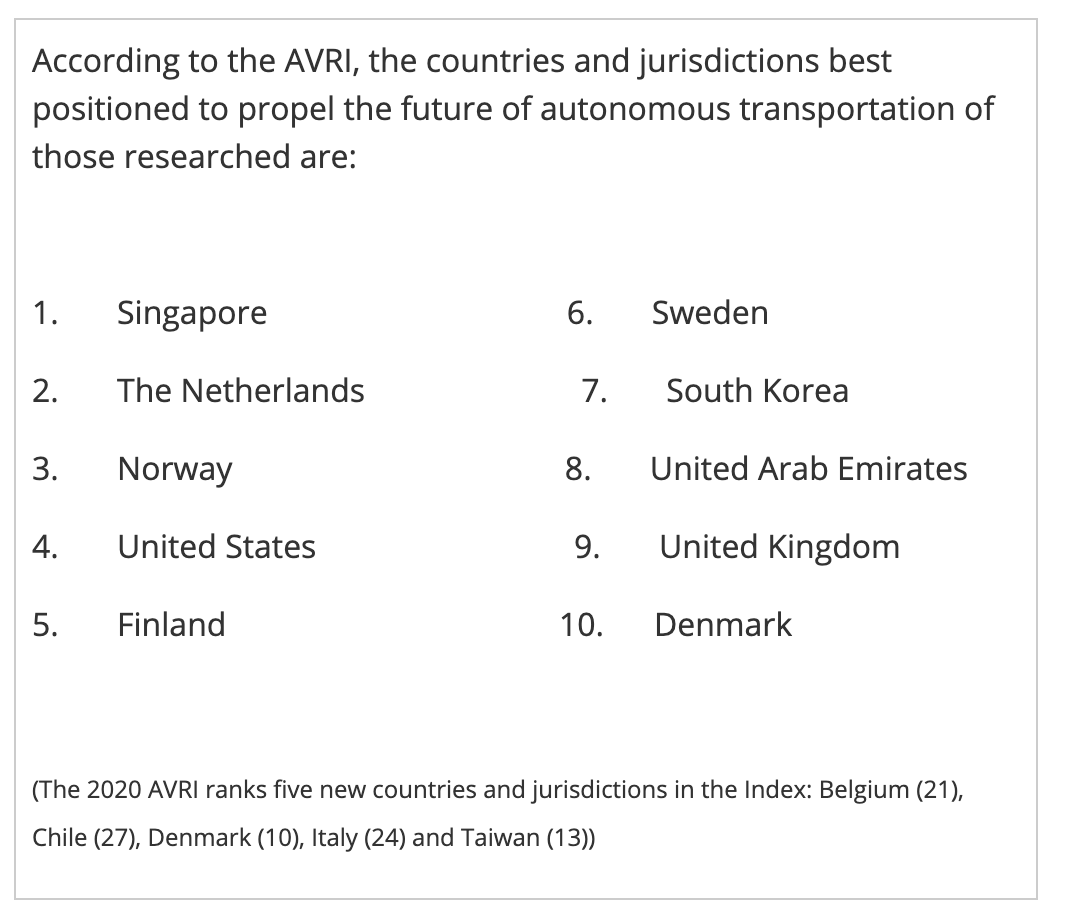This marks the first time the city-state has led the index.
Singapore has emerged as the country best prepared for the adoption and acceptance of autonomous vehicles (AV), as it ranked first in KPMG’s Autonomous Vehicles Readiness Index (AVRI).
This marked the first time that Singapore has led the AVRI, and is said to reflect its leadership in areas of consumer acceptance and policy as well as legislation pillars.
KPMG Singapore’s partner and head of infrastructure, government & healthcare, Satya Ramamurthy, noted that the decision to expand testing areas for AV to one-tenth of the public roads and ongoing investments in the electrification of transport were key factors among others that led Singapore to top the index.
Singapore’s ranking reflected the numerous steps it has taken since the start of 2019 to further the progress of AVs with the February 2020 national budget including $6m to support AV testbeds.

The government has also made additional investments in ensuring there is the right resources and human capital for the adoption of AV, this includes retraining of public transport drivers specifically in preparation for driverless vehicles.
KPMG added that Singapore is also a leader in the promotion of electric vehicles (EV), a critical precursor to AVs as it plans to massively increase the number of EV charging stations, from 1,600 to 28,000 by 2030.
The 2020 KPMG AVRI measures countries and jurisdictions across 28 indicators to assess their readiness and progress in furthering AV deployment and innovation. The indicators are organized under policy and legislation, technology and innovation, infrastructure, as well as consumer acceptance.



















